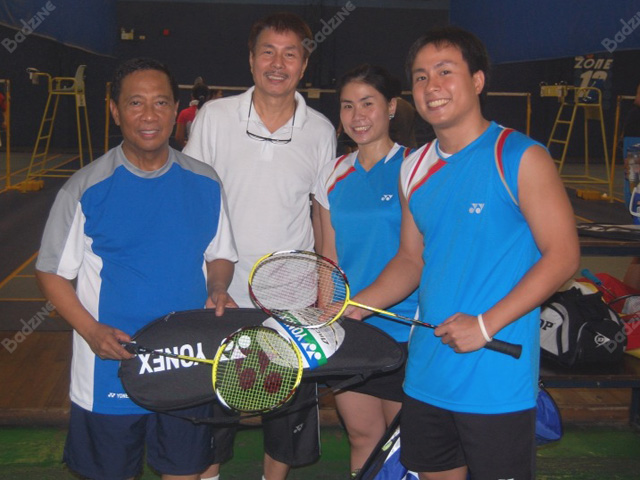
Left to right: Current Philippines Vice President Jejomar Binay, Coach Nelson Asuncion, Kennie Asuncion, Kennevic Asuncion (rights reserved)
Our new correspondent in the Philippines, Lee Anne Yabut brings us this interview with Coach Nelson Asuncion, a key figure in the Philippine badminton scene.
By Lee Anne Therese Yabut, Philippines, WWGBA
“There is no end in learning. Every single day, you learn something once you make a decision to do something. And in doing that, you have to want it. You have to want it, set it and do it one step at a time.”
Coach Nelson knows these words of his former coach Lin Feng Yu by heart.
Very few articles have been written about Coach Nelson Asuncion. In fact, if it were not for the past TV show and the free magazines that he and his children Kennie and Kennevic print every two months, I wouldn’t know anything about the former national player and passionate badminton advocate for 40 years. His shy demeanor, a far cry from his tags and movie screen names like “the Master” and “the Man with the Golden Touch”, made me feel at ease as we prepared for this interview. After listening to hours of his storytelling – all about Philippine badminton – I could feel his passion for the sport oozing from him and was inspired.
BZI: What made you play badminton?
Coach Nelson: I started playing late at 17. When I was 21, I had to stop because my parents were not supportive. About 8 years later, while watching the game in a famous badminton club–Valle Verde, I saw my former batch mates playing. I thought their techniques and styles had not improved as I would have expected.
So I decided to join a tournament to try if I still had the skills to do it. I made a deal with myself: if I reached 8 points in that singles match, I’d pursue playing badminton. I gave everything. However, my play was limited by my lack of physical stamina. I lost the match. But unbelievably, I managed to get those 8 points.
BZI: If you started late, how were you able to join the national team considering you never had any international training?
Coach Nelson: I did self-training. I ran, sprinted, and did zigzags every day after bringing my kids to school. I was already married that time but I wanted to play so much that I did everything to get my stamina back. I really wanted to play again so badly.
BZI: What was training like during your time?
Coach Nelson: When I started as a player in the 70’s, there was no proper training program. No proper strokes. All we did was play games. Practices and tournaments only happen at night after work and classes. There were no sponsors. Athletes with money were the only ones who could go outside the country for training or meet international players. Only the Philippine Badminton Association (PBA) could subsidize and send participants to international tournaments then.
BZI: But local players were still able to bag a few medals in international competitions, right?
Coach Nelson: Good question. There were talented players who were able to assimilate the tactics and strategies when they watched other international players. However, not all could do that. There are players who could not pick up these strategies even if you showed them face-to-face.
BZI: Was it harder for local players to get into the international scene? How were tournaments managed?
Coach Nelson: It was easier to qualify through the point system. There were certain tournaments that would give you 2-3 points for your ranking. But since there weren’t many sponsors, players had to wait for the PBA to provide funds and send them to competitions. While the PBA had the means to find sponsors (unlike now when players could personally find companies to sponsor them), there was no one who would cover for other travel arrangements like passports and terminal fees. During the time of President Fidel Ramos, support was a little better as he sponsored two or three tournaments. Two or three tournaments were many for us then.
BZI: You were part of the first batch of athletes sent out of the country for training in the early 80’s. What was the training like?
Coach Nelson: It was tough. I had to leave my work, my wife and children to go to Fuzhou, Fujian, China. About 10 of us were chosen by former President Ramos to go there for training. I had a diary where I recorded every detail of my stay there. I wrote about the excitement I felt when I met and shook hands with Tang Xian Hu. I didn’t want to wash my hands. I thought maybe after getting that handshake, his brilliance as a player would rub off on me. Maybe I could be as good as him. I wanted to frame my hand and hang it on the wall. I wrote every thought, every idea about my training, my family, and my children. When I came back, I didn’t realize that very same diary would be the basis of my own training program for my students.
BZI: When did you start coaching?
Coach Nelson: I started coaching in 1985. I was the founding coach of Valle Verde Badminton Youth Club. From the time I was in China, I was in contact with our coach there, Lin Feng Yu. He was known to have trained such badminton legends as Tang Xian Hu and Hou Jia Chang. What we did was take our local students there for exchange programs, dual meets and sparring sessions with Coach Lin’s students. While they were having their boot camp, I would attend coaching seminars. We did that every summer for 10 years.
BZI: After 1985, local players were not getting awards and trophies during international tournaments. We came back with a fresh breed of players in 1995 and became recipient of a lot of awards. I learned you were head coach that time. When did you become head coach? How did you get the rapport of players considering you were handling the national team for the first time?
Coach Nelson: I started as coach of the women’s national team before I became head coach under Mrs. Amelita Ramos in 1995. She was the Philippines First Lady that time. She helped the sport a lot by endorsing players and tournaments. I was very thankful that she gave me and the players a chance to train in China for a month. There was a lot of politicking going on that time. So when I bonded with my athletes in China, I laid down my training program and told them what I intended to do. I made a pact with them that I would keep that training program on track and that if I ever waivered, I would resign. They trusted me. Eventually, we started winning in international tournaments. I owe that to Mrs. Ramos.
BZI: What was your most memorable moment as head coach?
Coach Nelson: That was when I watched Weena (Amparo Lim) and Kennie (Asuncion) play for bronze in the 1997 Jakarta Southeast Asian (SEA) Games. The whole team was there. We were proudly cheering for them every single point during the decision game. It was surreal. It was indescribable. It was more than a match. It was more than a game. It was the moment when I felt that all the hard work that we went through, all the bumps and bruises, were all worth it… that I was meant to be there. When I saw everybody embracing and congratulating each other, it was then that I realized that the game was bigger than me. Our victory as a team was our moment. I couldn’t stop crying. [brushes his arms and neck, laughs]. I still have goose bumps just remembering it. That win was a first for the country.
BZI: When you came back from the SEA Games, I heard you had some problems. What were your struggles as a coach?
Coach Nelson: Before my training in China, my eldest son Kenneth approached me and said he didn’t want to play anymore. Despite his previous wins, another player bypassed him in the tournament selection. At first, I told to him to sleep it off but eventually the frustration got the best of him. It was hard to bear but I had to respect his decision. For a very long time, government assistance had been miniscule. Many times, my team felt unsupported and underappreciated. I even had to put up announcements and tarpaulins about my players’ victories. Coaching fees were very small but I trained athletes whenever I could – a lot of times for free – for about 20 years. I had a lot of frustration in the selection of players, material, management and the usual politics. I wanted to make things right for these players because they had the talent. It was a long battle.
BZI: Our country’s number 1 seeds, Kennie and Kennevic Asuncion won a lot of firsts for our country, like qualifying in the 13th World Championships. Is it hard to train family members? What is your opinion on families of professional players getting involved in the sport? Do you think it is more advantageous?
Coach Nelson: When I trained Kennie and Kennevic, it was more on reasons of availability. Before, it was difficult to assemble players because they have other personal activities, especially those who needed to work because allowances were so little. Kennie and Vic listen to me. I think it’s because they see how much I know the sport. They saw me during my playing years. They learn from my personal frustrations: when I lose, when I win, the difficulties I go through. I have nothing against former professional players training their younger relatives as long as there is respect in the coaches’ decisions, plans, et cetera. Badminton in our country is really a family sport. It starts in the family and it fits well with our family-oriented setting. Parents guide their children and show the sport to them. Not necessarily force them to play but the mere fact that children play with their parents, who also accompany them during training, can encourage children.
BZI: In almost 60 years of Philippine badminton, it was only a few years ago that badminton gained popularity. Early in the last decade, when a lot of our players, particularly Kennie and Kennevic, were doing great internationally, badminton became so popular that basketball courts were converted into badminton courts and that almost everyone played the sport. Were there other factors that contributed to this sudden upsurge in popularity?
Coach Nelson: It was a long process. At that time, the idea was to bring badminton to the masses not the other way around. What we did was organize tournaments in malls and have these tournaments shown on television. Then with the help of Mrs. Ramos, we organized big events such as Asia vs. Europe MVP Cup, where top players from abroad came to the Philippines to play. Then there were also the JVC Cup and the Philippine Open. Now, we’re promoting long-term badminton programs like the Philippine Badminton Ranking Selection (PBARS), where there will be a nationwide ranking of players. This will allow easier and fairer selection of players for tournaments and in the national team. It’s the first step of a long process. It’s still difficult given the lack of finances, level of support and management from government authorities. One step at a time. I have been here for almost 40 years and slowly but surely, I can see that things are moving. I am hopeful.
BZI: What are your dreams for this sport and have you achieved them?
Coach Nelson: Before, I dreamt that a Filipino would be able to play in the Olympics. And then, there was Erica (Von heiland), then Weena (Lim). Then the many firsts that Kennie, Kennevic and other players were able to pull off for the country. Then I dreamt that I would get to see stadiums packed with people, watching our athletes play. The MVP Cup happened. I could remember that moment – the stadium was full of people…not one empty seat. I thought before, those venues were just used by a couple of families, then I heard the very loud shouts and cheers for our players, especially when Kennie and Kennevic were playing. It was breathtaking for me – as a father and most especially as a coach. Now, my dream is to see a Filipino player win a place in the Olympics.
BZI: You seem to have concentrated more on coaching than playing? Is it more difficult to coach than play?
Coach Nelson: Not every player or champion gets to be a good coach. In coaching, not only should you be a good player but you should also be good in analyzing techniques and strategies to help your players improve. At the same time, you have to listen to your players.
My coach, Lin Feng Yu, said “Do not underestimate the ideas of a player, no matter how young or new he is. You have to rely also on his experiences primarily because he is the one executing your program. If a player asks questions and you don’t know what to answer, you have to be honest about it. Don’t make excuses. Because someday, that player will mature and he will gauge for himself if your training program is worth following. The hard thing about coaching is that once a player sees a mistake or a blunder, the level of trust is broken. You have to prevent that.”
BZI: About your ties with Coach Lin Feng Yu, do you still have contact with him? What are his sentiments about you coaching?
Coach Nelson: At first, he didn’t want me to coach. He said “Coaching is such a lonely road. You don’t always get the recognition you deserve and there are many players who try to break out from you by the time they try to make their own names”. But he has been very supportive of my coaching. He’s now more than 80 years old and we still keep contact, we still call each other. I also became friends with Li Yongbo, who is also from Fujian. I learned to use my training program in China in such a way that it is suitable to the Filipino culture. Training of the Chinese or Indonesians is not entirely applicable here – they do footwork and running for months before holding a racket. Filipinos are very visual. Many would want to feel they are playing badminton and not just running around. Many do not start as young as the Chinese and Indonesians. So I made a few adjustments.
BZI: You have come a long way – from coaching national players to organizing major tournaments like JVC, Yonex, Philippine Opens and MVP Cups. You also had ups and downs as an active participant in Philippine badminton. You’ve contributed so many things. What kept you going all these years?
Coach Nelson: Sometimes, all you need is to be sincere and humble in what you do. My coach said “Be sincere. Be honest. You can not do something you love without being sincere and honest about it”. He taught me to never waiver from that because people will see it. Players will see it. Trust and respect will then follow the moment you earn their appreciation. I still do my daily routines the way I have done for the last 40 years. I still clean my house, wash my own clothes, and bathe my dogs. I still live simply as I’ve always had. I hope when the time comes, my players – not just my children – will do the same.
BZI: Given your experiences, what does Philippine badminton need to improve?
Coach Nelson: Filipino players are very good. We have the talent. What players need are emphasis on team play, heart, and cooperation with the rules, programs and procedures. A lot of children who go to school and are well-off are great players. What about the rest who are poor and from the provinces? We should give them a chance, train them hard and they will absorb the training no matter how difficult. A lot of people say we have the potential. It would be such a waste not to utilize it. These players need support.
BZI: Do you have any message to the international community?
Coach Nelson: They’re very welcome to visit the Philippines and maybe help other coaches and athletes. We are open to exchange programs so that we could help other coaches update their training programs. Our center is always open to them. Badminton is here to stay. It is a beautiful sport, despite the hardships in programs and training. I hope future generations will be inspired by the way the sport has inspired me and my family.
BZI: To sum it up, what have you learned from your 40 years of Philippine badminton?
Coach Nelson: My coach said “There is no end in learning. Every single day, you learn something once you make a decision to do something. And in doing that, you have to want it. You have to want it, set it and do it one step at a time”. I have a lot of dreams for Philippine badminton and I hope I get the chance to see these dreams into reality. As an athlete, a coach, a fan, I would love to see the day when we could get our players up there in the rankings especially in the Olympic podium.
From his pictures, albums and souvenir programs to letters and greeting cards of all his players carefully kept in clear books since his Valle Verde days, it is not hard to see that Coach Nelson is a man insanely in love with badminton. He is a great example of a man finding his passion, a good man in more ways than one and a proud Filipino who sincerely wants to make a difference in his own way.
Continuing to serve Philippine badminton, his motto posted repeatedly in all his accounts, advertisements and paraphernalia, sums up all his efforts and love for the sport:
“Dream your dream and do your best. Never doubt, never rest until that dream is yours.”
![Coach Nelson Asuncion – A man with big dreams for the Philippine Our new correspondent in the Philippines, Lee Anne Yabut brings us this interview with Coach Nelson Asuncion, a key figure in the Philippine badminton scene. By Lee Anne Therese Yabut, […]](http://www.badzine.net/wp-content/uploads/Newsflash-thumbnail.png)

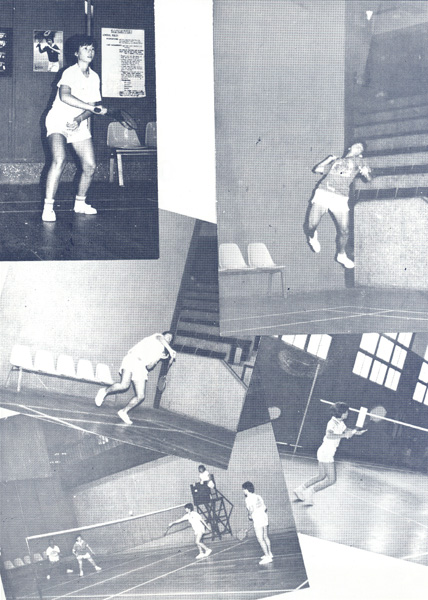
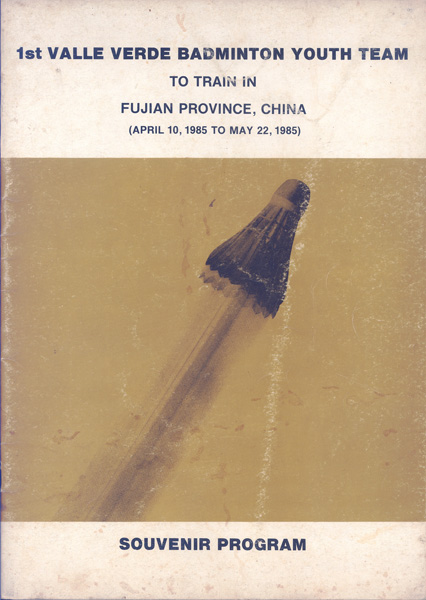
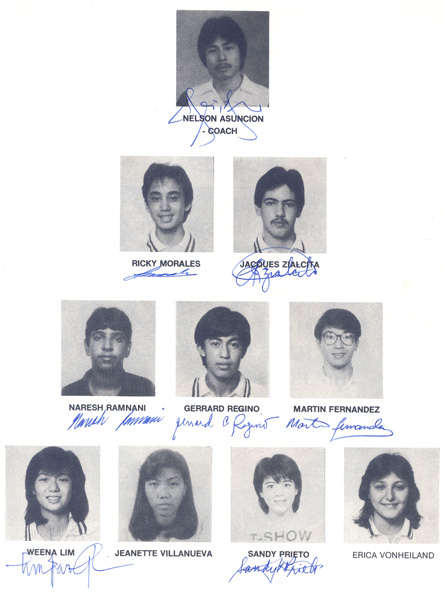
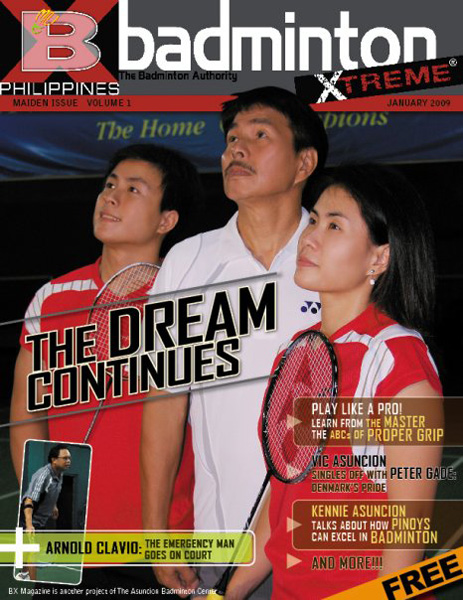
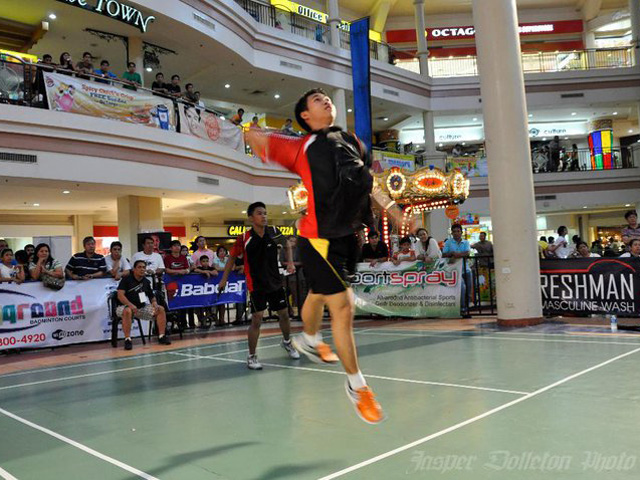
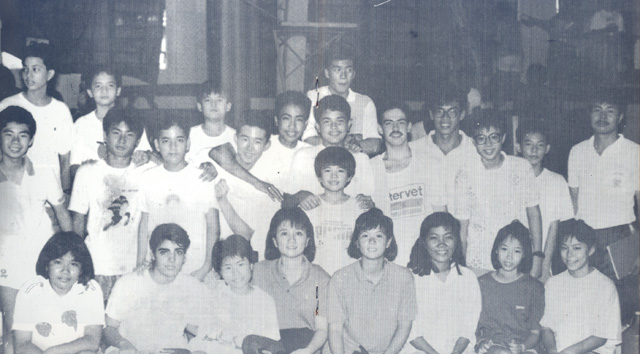
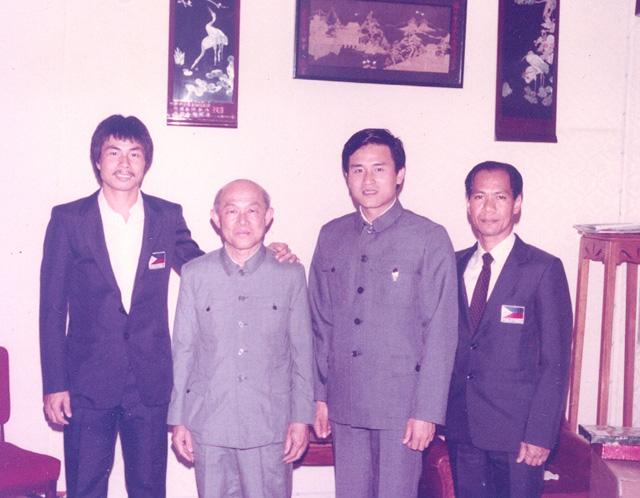
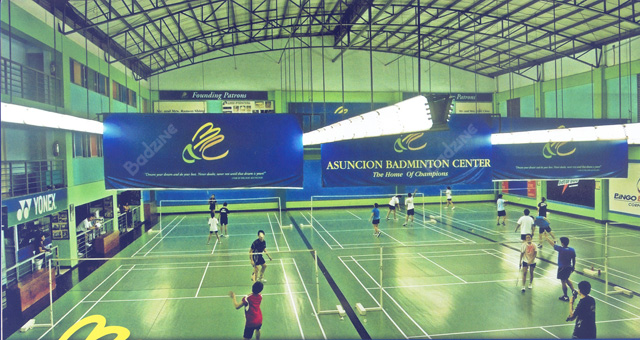
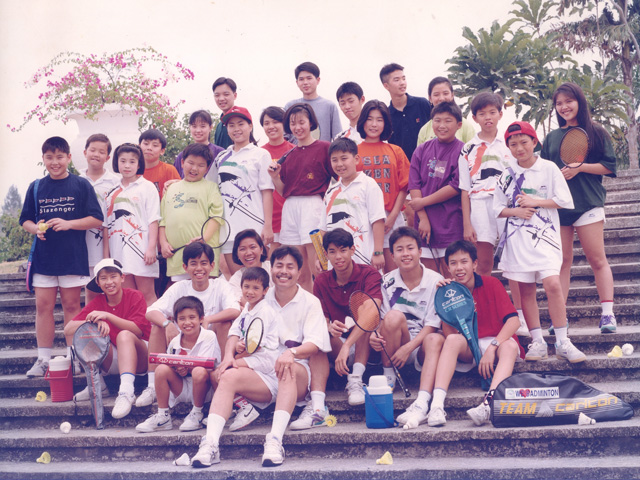
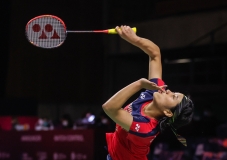
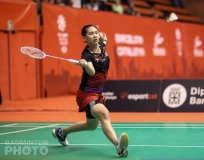
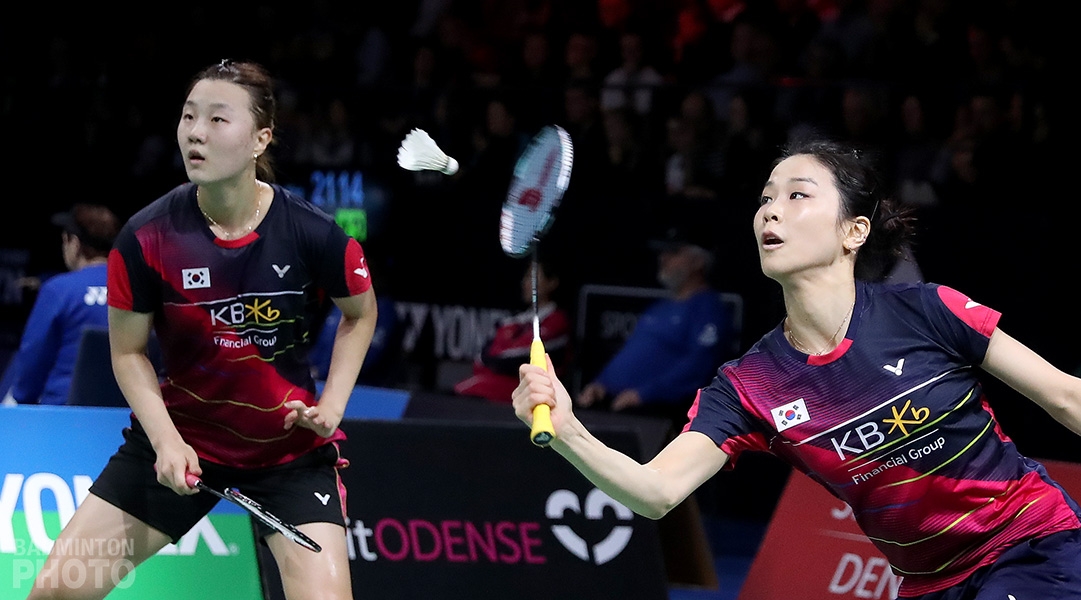
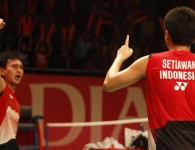
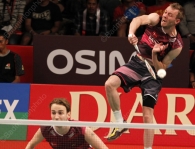
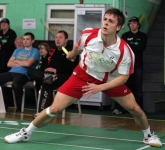
Leave a Reply